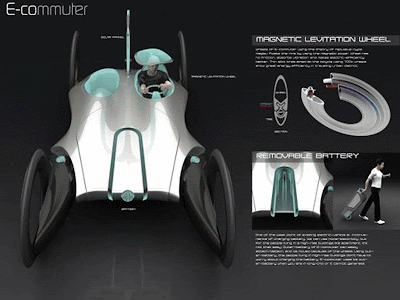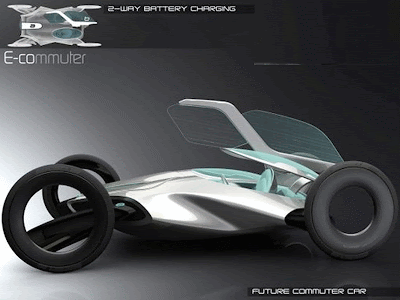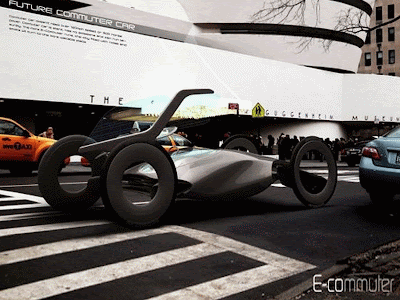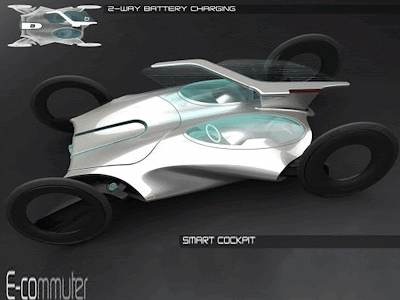
The team members, all majoring in industrial design, belong to the CLOTHO, which is a transportation design study group at SNUT (Seoul National University of Technology). We always try to challenge many international competitions for enhancing our talent.
The brainchild of designers Ho-young Joo, Soo-han Cho and JinSeok Song, the E-Commuter is what the streets of today will need for a green tomorrow. The concept has been designed to reduce air pollution that is caused by running vehicles on conventional fossil fuel engines. Ho-young Joo, 25, is now working in his internship at LG Electronics. He is a two-time finalist for Michelin Challenge Design. Soo-han Cho, 23, is currently doing his military requirement.

E-Commuter Solar-powered Vehicle
This next-generation concept vehicle will run clean on electricity, which will be provided by onboard solar panels. These solar panels will automatically track the sun and align themselves for maximum solar exposure. Energy generated by these panels will be stored in a battery.
Suffering extreme traffic congestion, the number of people using cars to commute is increasing. The exhaust from vehicles causes serious air pollution and deteriates the supply of fossil fuel. The next generation car should be a complete electric vehicle over the hybrid concept by using sustainable energy sources.

E-Commuter Solar-powered Vehicle
E-Commuter uses two kinds of cells. Using Photovoltaic power generation to charge the upper solar cell, and the insufficient energy of E-commuter can be supplied by Outer-battery. The outer-battery of E-commuter can easily attach/detach and be moved because of the wheels. E-commuter uses its outer-battery when you are in long-trip or it cannot generate energy so much because of the low amount of sunshine. The wheels of E-commuter uses the theory of repulsive-type maglev float by using the magnetic power. The wheel has no friction, it absorbs vibration and makes the electric-efficiency better. Thin slick tires aimed at the bicycle using 700c wheels show great energy efficiency in traveling through urban districts.

E-Commuter Solar-powered Vehicle
If the solar battery depletes and is not able to recharge itself, the vehicle also has a backup battery that can be recharged from a wall socket. The wheels of the E-Commuter absorb vibration and reduce friction for better efficiency. The designers believe that the E-Commuter will be able to hit a speed of up to 120mph, without clogging the streets with toxic smoke.











0 Comments:
Post a Comment